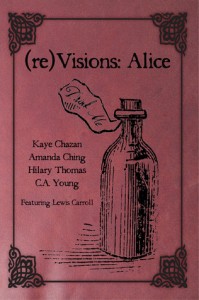
If there’s one thing you discover pretty quickly in life, it’s that acting like everyone else generally gets you more approval than doing your own highly-idiosyncratic thing.
It doesn’t matter whether you’re at school, or in a church, soccer club or bee fancier society, people like their fellow human beings to look like they just stepped out of conformity central casting.
Which can be a problem, when you’re Felicia Day, home schooled child of sort-of hippies, who grew up with all kinds of self-admittedly odd interests like playing Dungeons & Dragons, and figuring out how you graph a cosine equation, and weird is all you are and have ever known.
You’ve got two choices at that point – either do your best to fit in, at the expense of every last shred of your individuality, or embrace your weirdness and let your freak flag fly.
No prize for guessing which option Day, creator of pioneering online series The Guild and founder of Geek and Sundry, took.
As she admits, rather than shunning her oddball upbringing, and all the quirky elements it gifted her as a person, her weirdness has made her what she is now, the unofficial Queen of the Geeks, and one of the most visible people creatively active on the internet today.
“Sure, I could have avoided a lot of problems as an adult by being raised like everyone else. I might not have had as much performance anxiety, I might be better at maintaining relationships outside of hitting “Like” on a person’s Facebook post when they have a baby. But here’s the part I apologetically embrace: My weirdness turned into my greatest strength in life. It’s why I am who I am today and have the career I have.” (P.31)
What makes this declaration so refreshing is that she freely admits that she has just ended up with all the geeky good stuff.
In a theme that recurs throughout You’re Never Weird On the Internet (Almost), Day happily admits that her less than conventional upbringing has also has led to her being a workaholic perfectionist, having an addictive personality and being manifestly unable to say “No”.
While some intense life events, including a breakdown at the height of her success, forced her to deal with these than stellar attributes, she freely confesses it’s highly unlikely she will ever be any sort of cookie-cutter individual and that she’s totally OK with that.
It’s her willingness to embrace who she is, good points and bad, and talk about them in ways alternatively hilarious, introspective and wise that makes her book such a delightful, and yes empowering read.
If you’re the sort of person, like yours truly, who never really fit in with the crowd growing up, and who struggled for years with your uniquely weird persona, reading an account like Day’s gives you the intoxicating sense that you are far from being alone.
For every ten people who cling to the idea of wearing the same clothes at the same time at the same event while commenting in the same way on the same things everyone else is seeing, there’s at least one person who is happy to be themselves, no matter how odd it might appear to others.
And once you find others like you, says Day, it can be the most revelatory experience, one that set you up for life:
“I know the story of my Dragon-hood may sound a little sad but and weird and super geeky, but (kiss story aside) for a girl who was lonely and desperate for friends, that group of people was the most important thing to me growing up. I can’t imagine being as confident about my passion for geeky things today without that opportunity to connect with OTHER people who were saying ‘Wow, I love those geeky things, too!” (P. 54)
This strong of belonging has extended well into adulthood and Day spends much of You’re Never Weird On the Internet (Almost) talking about her time making The Guild, founding Geek and Sundry and attending a slew of comic-cons, as they’re sometimes termed, where you’re never really weird because everyone around you is just as weird:
“I think fan conventions are the epitome of what is fantastic about the internet. And probably why they’ve become so much more popular in the last several years. You’re never weird when you’re surrounded by people who are weird like you, right?” (P. 206)
What really makes her book so rewarding to read is that she deftly combines a spry, almost playful sense of humour with an almost cavalier willingness to admit to all sorts of failings and less than stellar moments.
So one minute you’re laughing in comforting recognition at a quip or perfectly-executed joke – the way the humour carries through on the page is impressive – and the next you’re that rejected kid in the middle of the playground, wondering why it is you’re not as well-accepted as everyone else seems to be.
Right to the very end, Day encourages everyone who reads the book to be themselves, be at peace with being themselves, and live their life, some minor and major modifications as circumstances dictate aside, as they please.
But this moral of her story never comes across as obviously sentimental or overly earnest,and is delivered always with heartfelt honesty, down to earth self-awareness and a great big dollop of appealing self-deprecatory humour.
Even so, it’s there, and there most clearly, and as you finish the last very funny, insightful and moving page, you’re left in no doubt that you are a singular creation, that you should shrink back form being that person, however you choose to express yourself, and that being weird is entirely a good, and life altering thing.
http://www.themarysue.com/how-to-be-amazing/?__scoop_post=a120a0e0-6156-11e5-aaf6-00221934899c&__scoop_topic=3295939#__scoop_post=a120a0e0-6156-11e5-aaf6-00221934899c&__scoop_topic=3295939
